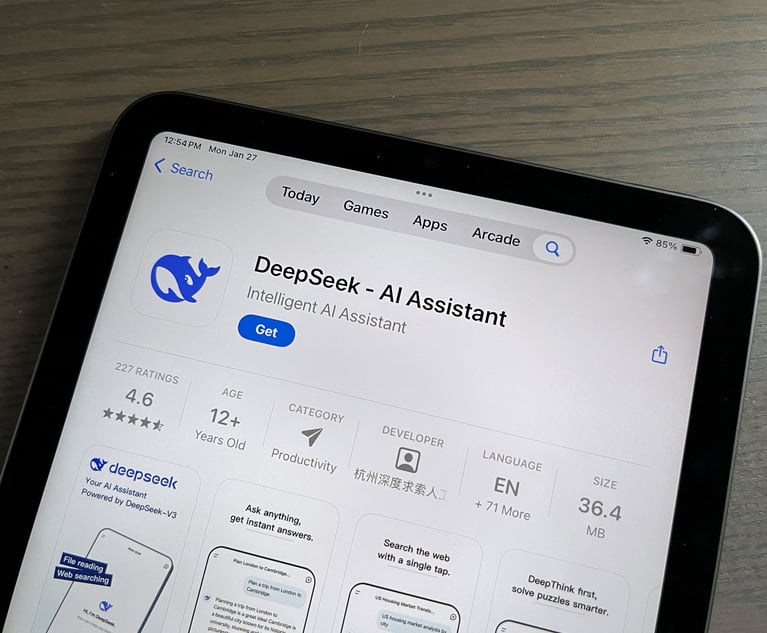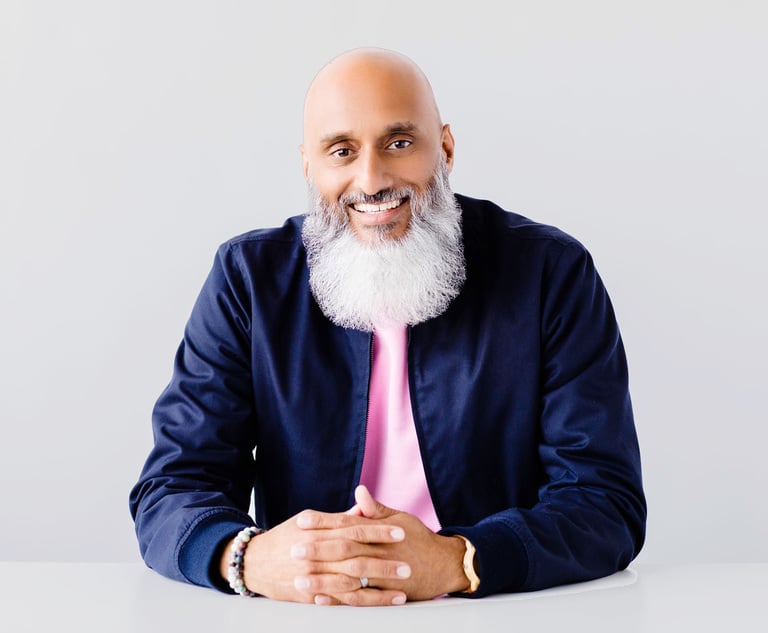The Calif. Court of Appeal Decision That Expands Negligence Exposure for Lawyers
What appears to be "textbook" attorney negligence has escalated into new precedent with the Court of Appeal abandoning the substantial factor causation analysis traditionally applied to a claim against an attorney for breach of fiduciary duty.
August 29, 2018 at 01:46 PM
9 minute read
 Pictured, from left, are Alina Pavlova and Janet Everson of Murphy Pearson Bradley & Feeney.
Pictured, from left, are Alina Pavlova and Janet Everson of Murphy Pearson Bradley & Feeney.
The recent decision of Knutson v. Foster (2018 DJDAR 7891) is troubling. What appears to be “textbook” attorney negligence has escalated into new precedent with the Court of Appeal abandoning the substantial factor causation analysis traditionally applied to a claim against an attorney for breach of fiduciary duty. This case also opens a new door for the recovery of emotional distress damages.
According to the opinion, when talented high school swimmer Dagny Knutson was evaluating which university to attend in 2010, head USA Swimming coach Mark Schubert recommended Knutson abandon her university plans in favor of swimming professionally. Schubert orally promised to support and train Knutson at a “Center for Excellence” in Fullerton through the 2016 Rio Olympics. The offer did not include any contingencies on performance markers. Knutson accepted this oral offer, which was not reduced to writing. At Schubert's recommendation, Knutson retained Evan Morgenstein, a sports agent, to be her agent.
A few months after Knutson relocated to California, USA Swimming fired Schubert as head coach. Schubert assured Knutson that USA Swimming would still honor their oral agreement. However, USA Swimming did not honor the oral agreement and Knutson retained attorney Richard Foster to represent her in efforts to enforce the oral contract.
Foster had several close relationships with leaders at USA Swimming, including Schubert. At the time that Foster agreed to represent Knutson, Foster did not disclose these relationships.
In an effort to resolve Knutson's dispute with USA Swimming, Foster contacted USA Swimming's executive director. The executive director informed that Schubert did not have the authority to make the promises that he did, but otherwise agreed to all the terms of Schubert's oral offer, as long as Knutson agreed to certain performance criteria. When Knutson explained that performance markers could add pressure and negatively impact her career, Foster negotiated lower performance criteria. A deal was reached and Knutson signed a settlement agreement.
Within a year, Knutson burned out, developed an eating disorder, and stopped swimming. A year later Knutson tried to regain National Collegiate Athletic Association eligibility. She was asked to provide her agency agreement with Morgenstein. When Morgenstein ignored her requests, Knutson again asked Foster for help. When Foster contacted Morgenstein, Morgensten asked for a release, which Knutson agreed to provide. Morgenstein thereafter turned over the agreement. Later, when Knutson requested that Morgenstein provide her with additional records, Foster advised Morgenstein that the disclosures would not be problematic as Knutson had already waived claims against Morgenstein. Ultimately, Knutson did not regain NCAA eligibility and gave up competitive swimming.
In 2014, Knutson learned of Foster's conflicts of interest. Knutson sued Foster, alleging fraudulent concealment and breach of fiduciary duty. Following a jury trial, Knutson prevailed on both causes of action. Foster moved for a new trial, arguing, in part, that Knutson failed to prove causation. The trial court agreed: “substantial factor causation [was] still an element of proof,” so Knutson had to prove that but for her attorney's conduct, she would have obtained a better result. (Knutson, supra, p. 7896.) Knutson appealed and the Fourth District Court of Appeal reversed, holding that the trial court erroneously “applied the legal malpractice standard of causation to Knutson's intentional breach of fiduciary duty cause of action.” (Knutson, supra, p.7898.) The court went on to say that “Knutson's claim for breach of fiduciary duty is based on intentional conduct and, thus, is subject to the substantial factor standard of causation.” The court did not explain which of Foster's acts were intentional.
The attorney-client fiduciary relationship “requires that the attorney respect his or her client's confidences. [Citations.] It also means that the attorney has a duty of loyalty to his or her clients. [Citations.]” (Cal Pak Delivery v. United Parcel Service, (1997) 52 Cal.App.4th 1, 11, quoting Zador v. Kwan (1995) 31 Cal.App.4th 1285, 1293.) The duties of confidentiality and loyalty are incorporated into the Rules of Professional Conduct as Rule 3-100 and Rule 3-310, respectively. “It is well established that an attorney's duties to his client are governed by the rules of professional conduct. (Citation.) Those rules, together with statutes and general principles relating to other fiduciary relationships, all help define the duty component of the fiduciary duty that an attorney owes his client. (Citation.)” (Mirabito v. Liccardo (1992) 4 Cal.App.4th 41, 45 (Mirabito).) “The breach of fiduciary duty can be based upon either negligence or fraud, depending on the circumstances.” (Tribeca v. First American Title Ins. (2015) 239 Cal.App.4th 1088, 1114.) To the extent the breach is based on negligence, the rules “provide the standard by which an attorney's breach of fiduciary duty is measured ….” (Mirabito, supra, 4 Cal.App.4th at p. 47.)
A cause of action for breach of fiduciary duty has three elements: (1) existence of a fiduciary relationship, (2) breach of fiduciary duty and (3) damages. (Oasis West Realty v. Goldman (2011) 51 Cal.4th 811, 820 (Oasis).) To prove negligence, plaintiff must show: “the existence of the duty of the processional to use such skill, prudence and diligence as other members of the profession commonly possess and exercise; (2) breach of that duty; (3) a causal connection between the negligent conduct and the resulting injury; and (4) the resulting damages to the plaintiff.” (Id. at p. 821.)
Where the breach is based on negligence, plaintiff must prove that “but for the [attorney's] misconduct, 'the plaintiff would have obtained a more favorable judgment or settlement in the action in which the malpractice allegedly occurred.' ” (Gutierrez v. Girardi (2011) 194 Cal.App.4th 925, 934, quoting Blanks v. Seyfarth Shaw (2009) 171 Cal.App.4th 336, 357.) This is commonly known as the “but for” test. To prevail, plaintiff must establish a strong causal link between the attorney's negligent conduct and the unfavorable case outcome: had it not been for the misconduct, the attorney's client would have been in a better position.
On the other hand, where the breach is based on fraud, substantial factor is the standard of causation. Plaintiff must prove that “it was more likely than not that the conduct of the defendant was a substantial factor in the result.” (Stanley v. Richmond (1995) 35 Cal.App.4th 1070.) The causal link is more attenuated than with “but for” causation. “More likely than not” is less definitive and more flexible, and therefore easier to prove than the affirmative “but for.”
In Knutson, the court listed the acts that Foster was accused of, revealing violations of the Rules of Professional Conduct, i.e., negligent breaches of fiduciary duty:
- “[F]ailing to provide written disclosures to Knutson of his relationships with USA Swimming.” This is a violation of Rule 3-310 of California Rules of Professional Conduct, which proscribes against representation of adverse interests. Under the rule, an attorney “shall not accept or continue representation of a client without providing written disclosure to the client where: (1) the [attorney] has a legal, business, financial, professional or personal relationship with a party or witness in the same matter;” or (2) the member has previously had this kind of relationship and the relationship “would substantially affect the member's representation.” This is also a violation of Rule 3-500, which requires a lawyer to “promptly inform the client of any decision or circumstance with respect to which disclosure or the client's informed consent is required….”
- “[F]ailing to ensure Knutson understood the terms of the settlement with USA Swimming.” This is a violation of Rule 3-510(a), which provides “A lawyer shall promptly communicate to the lawyer's client: (2) all amounts, terms and conditions of any written offer of settlement made to the client in all other [than criminal] matters.”
- “[F]ailing to employ all negotiation strategies beneficial to Knutson (such as threatening to go public with the dispute),” a violation of Rule 3-500, which requires a lawyer to “reasonably consult with the client about the means by which to accomplish the client's objectives in the representation.”
- [F]ailing to disclose all communications he received from USA Swimming personnel,” a violation of Rule 3-500, which requires a lawyer to “keep the client reasonably informed about significant developments relating to the representation,” as well as Rule 3-310 regarding conflicts of interest.
- [F]ailing to obtain any consideration for Knutson while encouraging her to sign a release of claims against Morgenstein,” violation of Rule 3-310 regarding conflicts of interest.
- [T]elling Morgenstein that Knutson's claims against him would be weak.” A violation of the Rules of Professional Conduct, Rule 3-310, a conflict of interest.
The court appears to have arbitrarily declared these acts to be intentional breaches of fiduciary duty. Then, applying substantial factor causation, the court required very little proof that Knutson's settlement would have been more favorable had Foster proceeded differently. Hindsight is 20/20, and this ruling allowed Knutson to prevail under a significantly lower standard than is traditionally applied to legal malpractice.
This court also deviated from the well-established precedent that “run of the mill” legal malpractice cases do not allow for the recovery of emotional distress damages. Only where a liberty (rather than mere economic) interest is involved are emotional distress damages recoverable in legal malpractice cases. (Holliday v. Jones (1989) 215 Cal.App.3d 102.)
Without explanation, the Fourth District abandoned the decades-old rules applicable to legal malpractice breach of fiduciary duty claims. Essentially, this holding allows a plaintiff to prevail without proof of actual causation, and significantly expands the potential exposure for all lawyers in the state of California.
Janet Everson is a shareholder at Murphy Pearson Bradley & Feeney in San Francisco with a practice emphasizing professional liability defense and general business litigation. Alina Pavlova is an associate at the firm.
This content has been archived. It is available through our partners, LexisNexis® and Bloomberg Law.
To view this content, please continue to their sites.
Not a Lexis Subscriber?
Subscribe Now
Not a Bloomberg Law Subscriber?
Subscribe Now
NOT FOR REPRINT
© 2025 ALM Global, LLC, All Rights Reserved. Request academic re-use from www.copyright.com. All other uses, submit a request to [email protected]. For more information visit Asset & Logo Licensing.
You Might Like
View All
Redeveloping Real Estate After Natural Disasters: Challenges, Strategies and Opportunities
6 minute read
The Time Is Now for Employers to Assess Risk of Employees’ Use of DeepSeek
4 minute read
Loopholes, DNA Collection and Tech: Does Your Consent as a User of a Genealogy Website Override Another Person’s Fourth Amendment Right?

Trending Stories
- 1States Accuse Trump of Thwarting Court's Funding Restoration Order
- 2Microsoft Becomes Latest Tech Company to Face Claims of Stealing Marketing Commissions From Influencers
- 3Coral Gables Attorney Busted for Stalking Lawyer
- 4Trump's DOJ Delays Releasing Jan. 6 FBI Agents List Under Consent Order
- 5Securities Report Says That 2024 Settlements Passed a Total of $5.2B
Who Got The Work
J. Brugh Lower of Gibbons has entered an appearance for industrial equipment supplier Devco Corporation in a pending trademark infringement lawsuit. The suit, accusing the defendant of selling knock-off Graco products, was filed Dec. 18 in New Jersey District Court by Rivkin Radler on behalf of Graco Inc. and Graco Minnesota. The case, assigned to U.S. District Judge Zahid N. Quraishi, is 3:24-cv-11294, Graco Inc. et al v. Devco Corporation.
Who Got The Work
Rebecca Maller-Stein and Kent A. Yalowitz of Arnold & Porter Kaye Scholer have entered their appearances for Hanaco Venture Capital and its executives, Lior Prosor and David Frankel, in a pending securities lawsuit. The action, filed on Dec. 24 in New York Southern District Court by Zell, Aron & Co. on behalf of Goldeneye Advisors, accuses the defendants of negligently and fraudulently managing the plaintiff's $1 million investment. The case, assigned to U.S. District Judge Vernon S. Broderick, is 1:24-cv-09918, Goldeneye Advisors, LLC v. Hanaco Venture Capital, Ltd. et al.
Who Got The Work
Attorneys from A&O Shearman has stepped in as defense counsel for Toronto-Dominion Bank and other defendants in a pending securities class action. The suit, filed Dec. 11 in New York Southern District Court by Bleichmar Fonti & Auld, accuses the defendants of concealing the bank's 'pervasive' deficiencies in regards to its compliance with the Bank Secrecy Act and the quality of its anti-money laundering controls. The case, assigned to U.S. District Judge Arun Subramanian, is 1:24-cv-09445, Gonzalez v. The Toronto-Dominion Bank et al.
Who Got The Work
Crown Castle International, a Pennsylvania company providing shared communications infrastructure, has turned to Luke D. Wolf of Gordon Rees Scully Mansukhani to fend off a pending breach-of-contract lawsuit. The court action, filed Nov. 25 in Michigan Eastern District Court by Hooper Hathaway PC on behalf of The Town Residences LLC, accuses Crown Castle of failing to transfer approximately $30,000 in utility payments from T-Mobile in breach of a roof-top lease and assignment agreement. The case, assigned to U.S. District Judge Susan K. Declercq, is 2:24-cv-13131, The Town Residences LLC v. T-Mobile US, Inc. et al.
Who Got The Work
Wilfred P. Coronato and Daniel M. Schwartz of McCarter & English have stepped in as defense counsel to Electrolux Home Products Inc. in a pending product liability lawsuit. The court action, filed Nov. 26 in New York Eastern District Court by Poulos Lopiccolo PC and Nagel Rice LLP on behalf of David Stern, alleges that the defendant's refrigerators’ drawers and shelving repeatedly break and fall apart within months after purchase. The case, assigned to U.S. District Judge Joan M. Azrack, is 2:24-cv-08204, Stern v. Electrolux Home Products, Inc.
Featured Firms
Law Offices of Gary Martin Hays & Associates, P.C.
(470) 294-1674
Law Offices of Mark E. Salomone
(857) 444-6468
Smith & Hassler
(713) 739-1250






